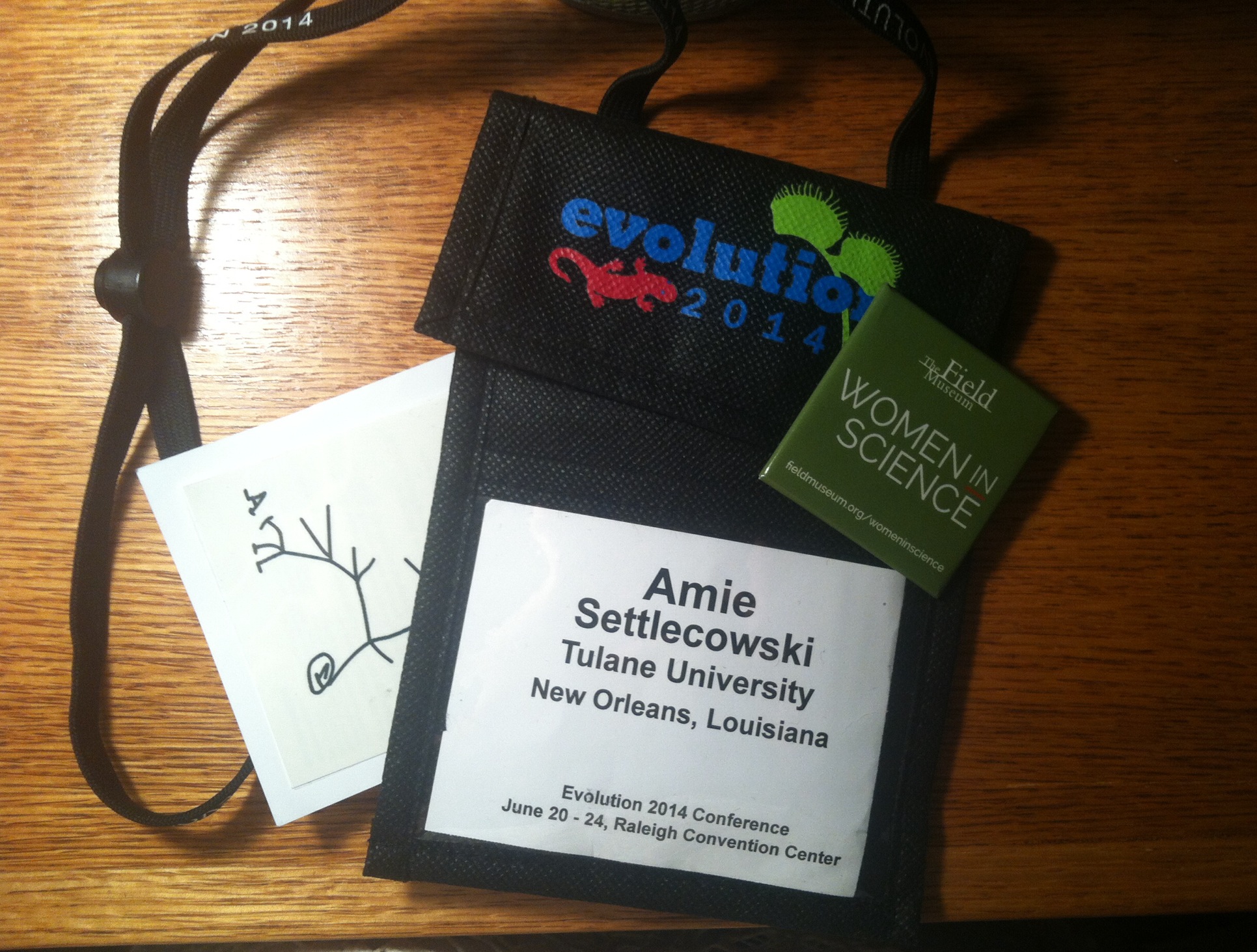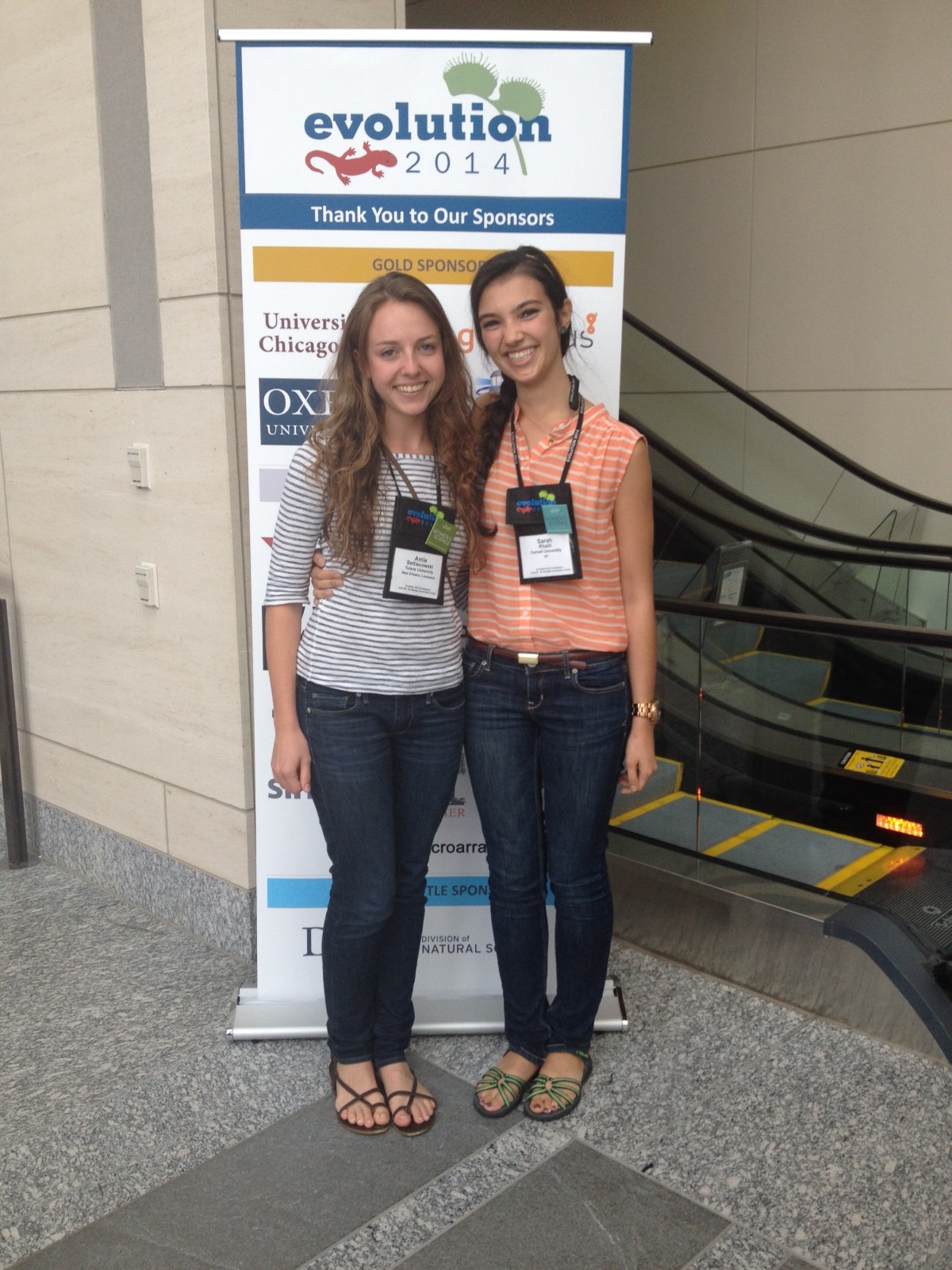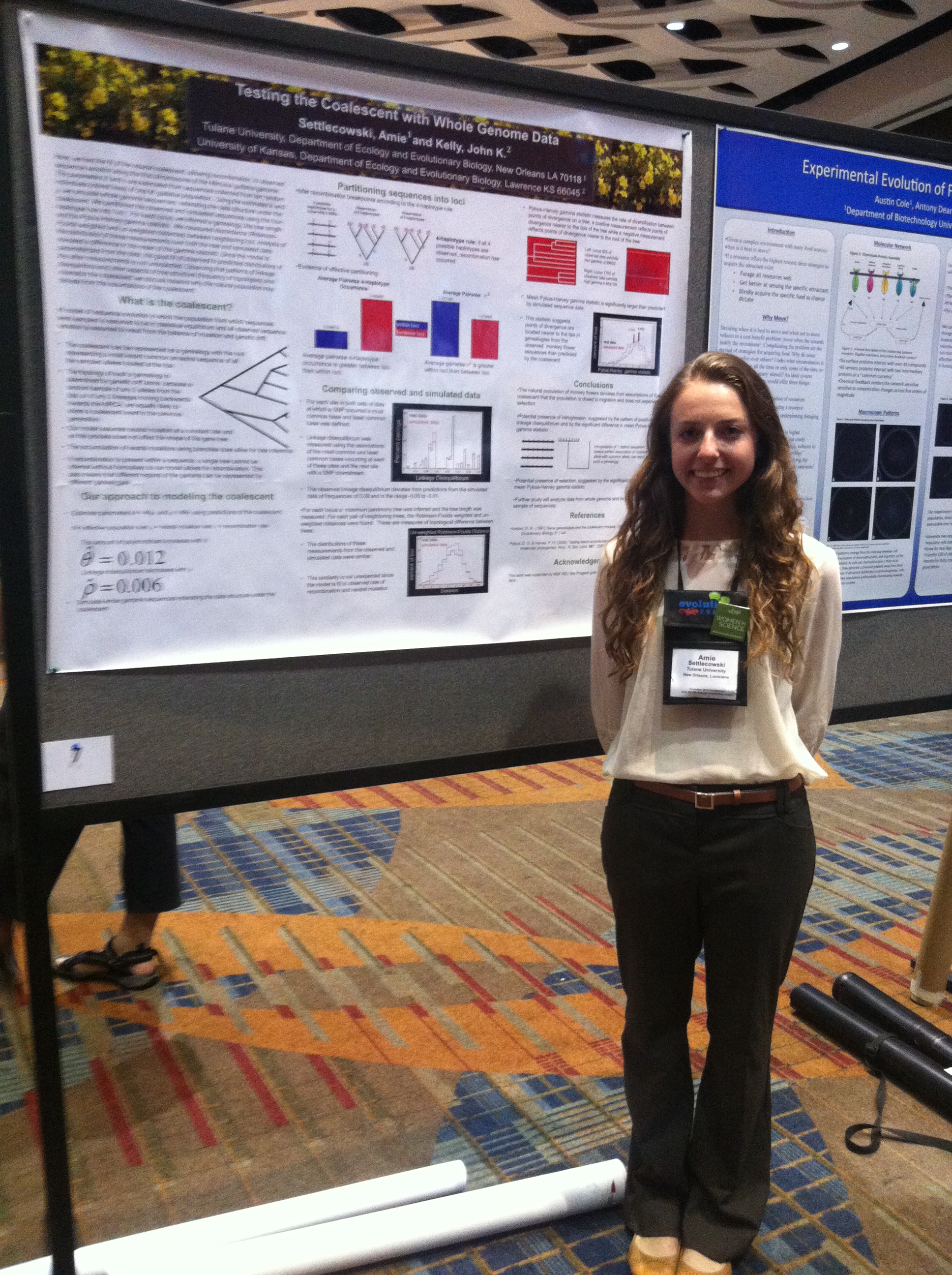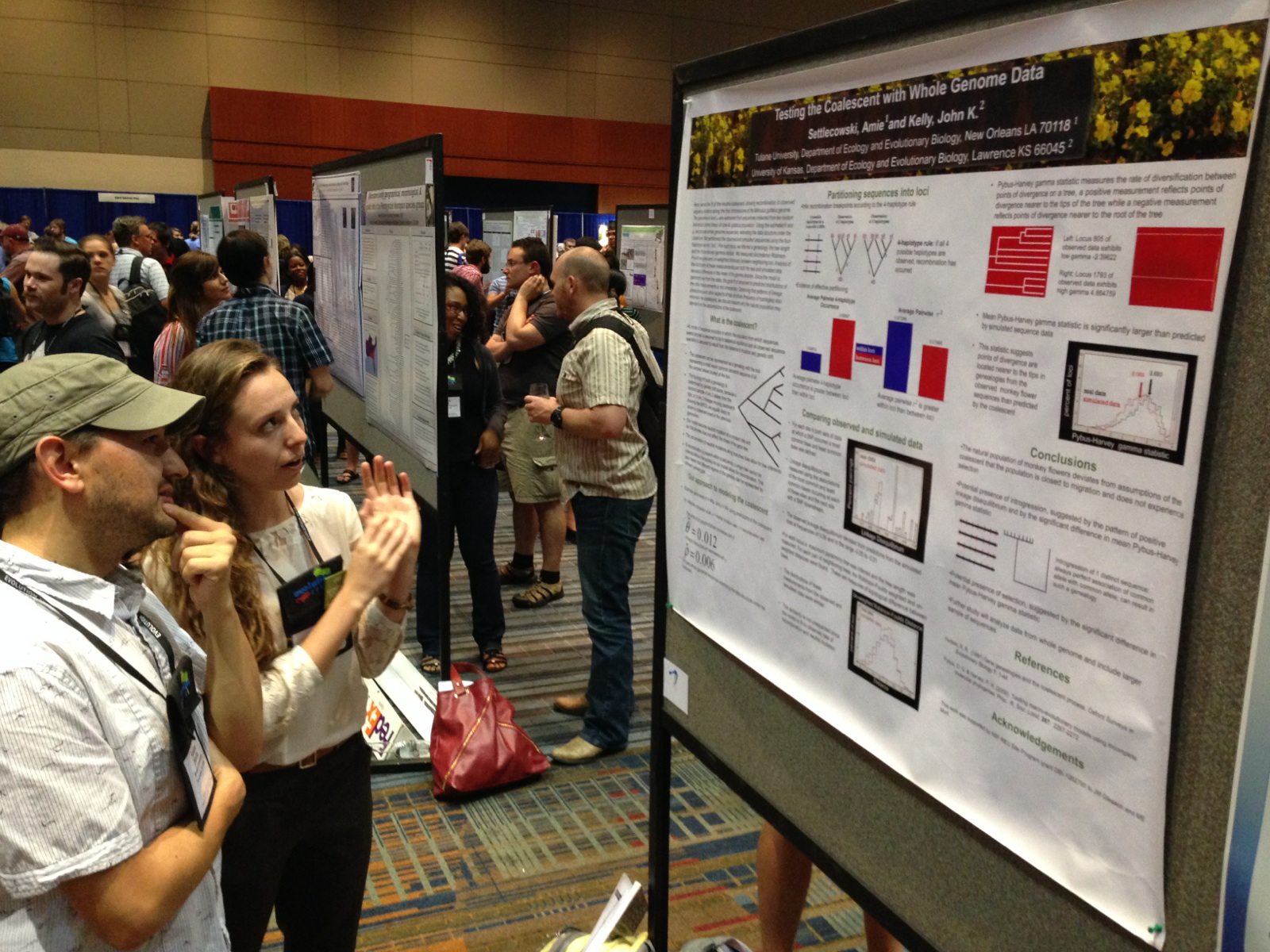Hey again! The last time I wrote I introduced myself as a rising senior at Tulane University studying Ecology and Evolutionary Biology and a little bit of Math (in other words, that’s my minor) and explained what I was up to in the Derryberry lab this summer. However, after just a couple short weeks back in the lab, I traveled to Raleigh, North Carolina in order to attend Evolution, an annual conference that brings together the Society for the Study of Evolution (SSE), the Society of Systematic Biologists (SSB), and the American Society of Naturalists (ASN). I received a travel award and funding through Undergraduate Diversity at Evolution and, along with 24 other undergraduates from around the country, had the opportunity to participate in an international research conference focused on evolution.


Evolution took place between June 20th and 24th and included over 1000 research talks presented by biologists in varying stages of their careers, scheduled from 8 am until the early evening every day. I cannot possibly overstate how awesome an experience it was learning about the cutting edge research taking place in the field I am trying to break into from the scientists who are conducting it! I think I burnt myself out attending all the talks that interested me…needless to say I had no understanding of how tiring attending a research conference could be. But the exhaustion was totally worthwhile! Recurring topics like the increasing availability of massive amounts of genomic data as the result of new next generation sequencing methods and the development of countless new tools and methods of analysis appropriate for utilizing this data came up in many of the talks I attended. I heard over and over that genomic data and innovative methods of analysis taken together are allowing us to gain a better understanding of the historical relationships among organisms and uncover the underlying patterns and processes that have led to the biodiversity that exists today. I know I want to continue to be a part of the advancement of this field.


Poster sessions also took place from 7-9 a few of the nights, giving hundreds of primarily graduates students the opportunity to interactively present their research. I was lucky enough to have an opportunity to present my own poster from a project I worked on under the guidance of John Kelly. I did this research while participating in an REU (Research Experience for Undegraduates) funded by the National Science Foundation last summer at the University of Kansas. While I was extremely anxious (as I always am before presenting my work) leading up to my poster presentation, I was pleasantly surprised that people were genuinely interested in hearing about what I had learned.
As part of the Undergraduate Diversity at Evolution program I was also paired up with two really great mentors, Maria Orive and Tracy Heath, each for one of the first two full days of the conference. Maria Orive studies theoretical population genetics and is an Associate Professor at the University of Kansas, where I had actually already met her last summer. Tracy Heath is a Post Doctoral Fellow at UC Berkely and the University of Kansas, who develops Bayesian inference methods for phylogenetic analyses. It was great to get the chance to network with two female scientists applying mathematics to different sets of biological problems, as well as to hear their perspectives about attending graduate school and specific advice given my interests.
After attending research talks, presenting at my first professional conference, and networking with a number of biologists currently in the field, I returned to New Orleans somewhat overwhelmed by all the knowledge I had been surrounded with for days. However, I also was extremely motivated to think more seriously about my own future plans. While I am not sure that academia is where my career path is ultimately leading, this experience at Evolution ensured me that I have a definitive interest in research. Furthermore, I know that I have made the right decision for myself in pursuing the research opportunities in evolutionary biology I have up through this point in my undergraduate education…Now just to figure out what exactly I want to study in graduate school and how that will prepare me for a research career outside of academia.
